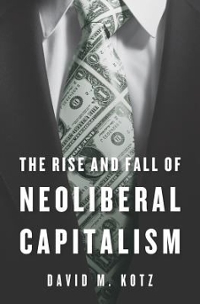Question
1 Solve Suppose Fox has reference-dependent preferences over money, stickers, and airplanes. Let his consumption in money, stickers, and airplanes be c1, c2, and c3,
1 Solve
Suppose Fox has reference-dependent preferences over money, stickers, and airplanes. Let
his consumption in money, stickers, and airplanes be c1, c2, and c3, respectively, and let his
reference points in money, stickers, and airplanes be r1, r2, and r3, respectively. Then, Fox's
utility is given by
v(c1 r1) + v(4c2 4r2) + v(4c3 4r3),
where v(x) = x for x 0, and v(x) = 2x for x < 0. Normalize Fox's initial amount of money
to zero, and suppose he starts off with zero stickers and zero airplanes.
1. What will be Fox's utility from losing two stickers, gaining one airplane, and gaining
$6?
2. Fox arrives at the experiment, and it turns out that he receives an $8 show-up bonus,
which he does not incorporate into his reference point for money. Suppose Fox is given
a sticker (and he does incorporate this into his reference point). Calculate his selling
price by (i) writing down his reference point; and (ii) solving for the price pS that
makes him indifferent between keeping his sticker and receiving nothing and giving up
his sticker and getting pS.
3. Now suppose Fox is not given a sticker. Calculate his buying price by (i) writing down
his reference point; and (ii) solving for the price pB such that he is indifferent between
getting a sticker for pB and not getting or paying anything.
4. Identify which of the prices pS and pB is different from the one we calculated in class.
Explain intuitively (and briefly) what drives the difference.
5. Argue briefly that Fox's buying and selling prices for airplanes are the same as for
stickers.
For the rest of the question, suppose that Fox has two options in the experiment: to buy
a sticker for $7, and to buy an airplane for $6.
6. Suppose Fox arrives at the experiment with a reference point of having one sticker and
one airplane (perhaps because he was told he could get these as gifts). His reference
point in money is still $0, and he still receives the $8 show-up bonus. Would he buy a
sticker for $7 if that was the only choice he was offered? Would he buy an airplane for
$6 if that was the only choice he was offered? Would he make both purchases? Briefly
explain the intuition.
7. Now suppose Fox can choose whether to enter the above experiment with a reference
point of getting the sticker or a reference point of getting the airplane, knowing the
prices in advance. (He still cannot choose his reference point in money, which is $0, and
he knows he will get $8.) Which one would he choose? Briefly explain the intuition.
Step by Step Solution
There are 3 Steps involved in it
Step: 1

Get Instant Access to Expert-Tailored Solutions
See step-by-step solutions with expert insights and AI powered tools for academic success
Step: 2

Step: 3

Ace Your Homework with AI
Get the answers you need in no time with our AI-driven, step-by-step assistance
Get Started


